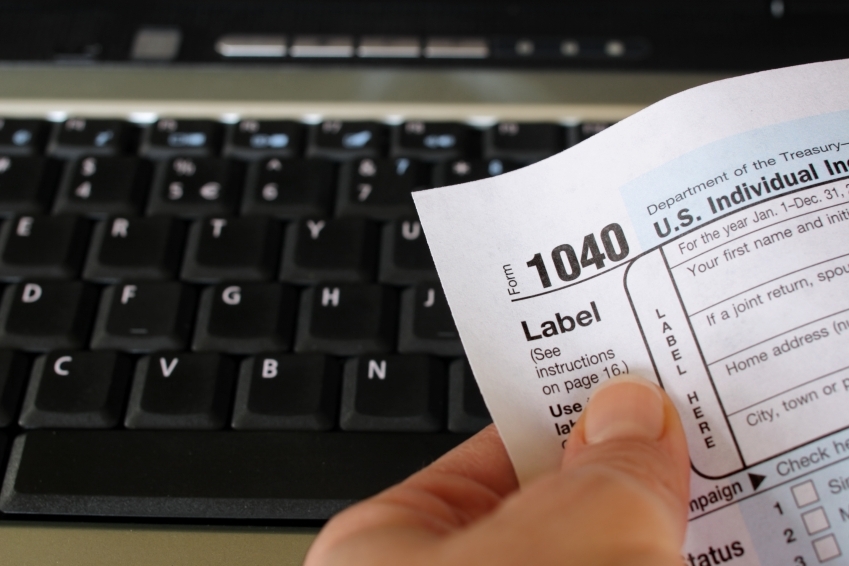Advertisement
FHA Insider: Need clarity on FHA’s allowance of the first-time homebuyer tax credit?

If you are, you are definitely not alone. This Federal Housing Administration (FHA) update is from Mortgagee Letter 2009-15, which establishes the guidelines for the use of first-time homebuyer tax credit as settlement funds.
Since this update was released, I have been getting e-mails from loan officers (LOs) across the country asking for clarity on how the program works. The fact is that these updates can be confusing if you are not proficient with FHA guides, as each of these updates presumes you have a good working knowledge of the guides and each update builds on that previous working knowledge. I hope to clarify how the First-Time Homebuyer Tax Credit (FTHBTC) works with FHA, and to give you the information you need to be an informed mortgage professional.
The easiest way to understand these new guides is to look at them as two separate programs and two separate ways FHA allows use of the FTHBTC for settlement funds. The first is when the amount of the tax credit is advanced to the buyer in the form of a second lien, and the second is when the tax credit is purchased from the buyer in the form of an unsecured loan. To restate: One way is an advance with a lien and the other is a purchase of the tax credit as a loan. Now I will explain in more detail each of these two programs.
Method 1: The advance of the tax credit with a second lien
1. The IRS tax credit refund can be made only to the taxpayer and not a third party. Meaning the tax payer will get the refund and just repay the second line according to the terms of the lien.
2. The entity offering the tax credit advance with second liens can be a federal, state or local government office or an FHA-approved non-profit (HUD 4155.1 5.C).
3. The buyer cannot get cash back through the tax credit advance. That is, if the TC is $8,000, but the buyer only needs $5,000 to close, the agency cannot give them back the $3,000 difference.
4. The second lien may not exceed the downpayment, closing costs and prepaid expenses. Please note that with the second lien method, they can use these funds for the 3.5 percent downpayment and the advance can exceed the tax credit amount. According to FHA Guides, the agency giving the second lien is able to offer the full amount of acquisition costs (4155.1 5.C.3.c). For example, if the buyer’s downpayment plus closing costs plus prepaids equals $10,000, and the tax credit is for only $8,000, the second lien cannot exceed $10,000.
5. The second lien may be "soft" or require payments. Many government agencies already offer soft seconds that are either forgiven after a certain period of time or payable when the home sells. Some agencies do require payments. With the American Recovery and Reinvestment Act (ARRA) funds, many county and city agencies have been allotted money for these types of programs, which really benefit the borrowers. I learned about a program in the state of Michigan that offers up to 50 percent toward a FTHB purchase. Learning about and understanding how these programs work can help you stand out with your marketing, so contact your government offices and research these programs!
6. Payments on second liens must be included in ratios unless deferred for at least 36 months. You will need to find out the terms of the loan. If you find that the payment is deferred for at least 36 months, you don’t have to include the payments in the ratios.
7. Balloon payments on second liens may not become due before 10 years.
Method 2: The purchase of the tax credit
FHA-approved mortgagees and FHA approved non-profits may purchase the tax credit.
The tax credit purchaser may not charge more than 2.5 percent of the tax credit as a fee. The mortgagee or non-profit is allowed to charge a fee for the service they are providing, and that fee cannot be more than 2.5 percent of the tax credit amount. For example, if the tax credit is $8,000, the fee the buyer is charged cannot exceed $200. This is not a hard and fast rule, and the letter states that it’s only “FHA’s view” that the fees not exceed 2.5 percent of the tax credit amount.
The IRS may deduct from the tax credit: Unpaid student loans, tax liens and garnishments. Therefore, lenders and agencies are cautioned to do their due diligence in researching whether the borrower has any other credit obligations which would offset the tax credit amount.
The proceeds of the sale of the tax credit can be used for closing costs, prepaids and additional downpayment above the 3.5 percent. Please note that with the Tax Credit Purchase method, the buyer cannot use these funds for the 3.5 percent downpayment.
If you're an FHA lender that has adequate resources and are able to quickly implement new programs, taking advantage of this change could help boost your purchase volume. This program could form the foundation of your homebuyer marketing for the rest of the year. You only have until Dec. 1, which is when the program ends, so take action now.
I suggest going to city administrators and informing them about this program. Cities throughout the country have been allotted millions through the ARRA funds to help them create homeownership. This could be a way you can help them make those funds go farther, which is music to any city administrator’s ears. Position yourself as an FHA expert and offer to do a community seminar about this program.
Go FHA!
Jeff Mifsud founded Southfield, Mich.-based Mortgage Seminars LLC in 2004, has been an FHA originator for 12 years, is a contributor to LoanToolbox.com and is a former FHA underwriter. Jeff may be reached at (877) 342-9100.
About the author





